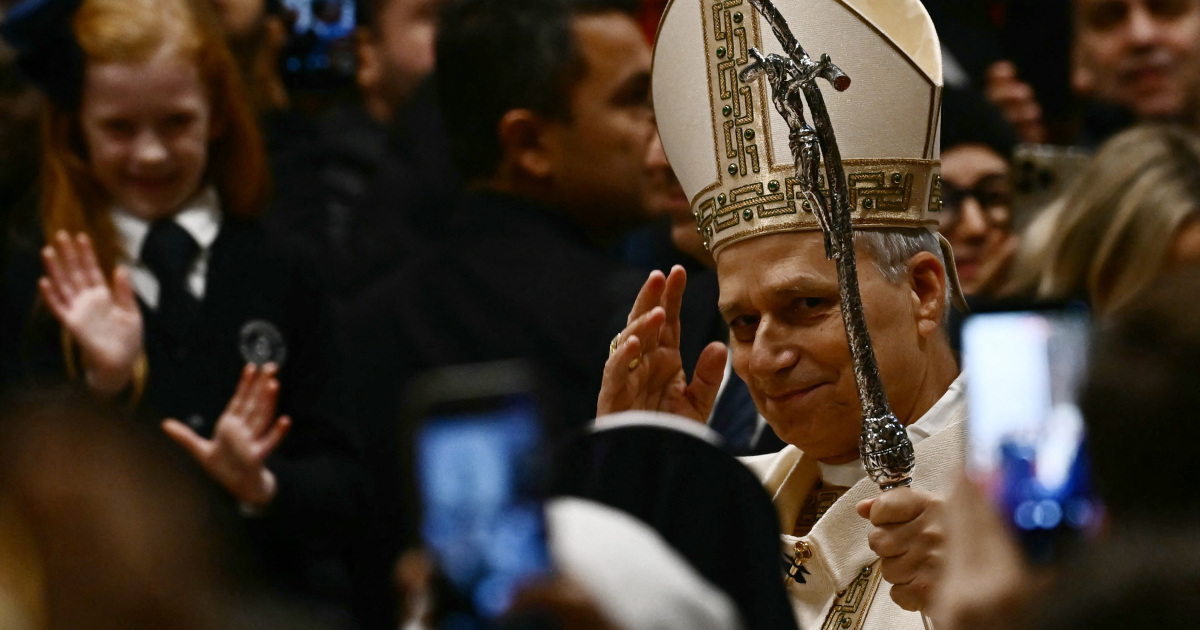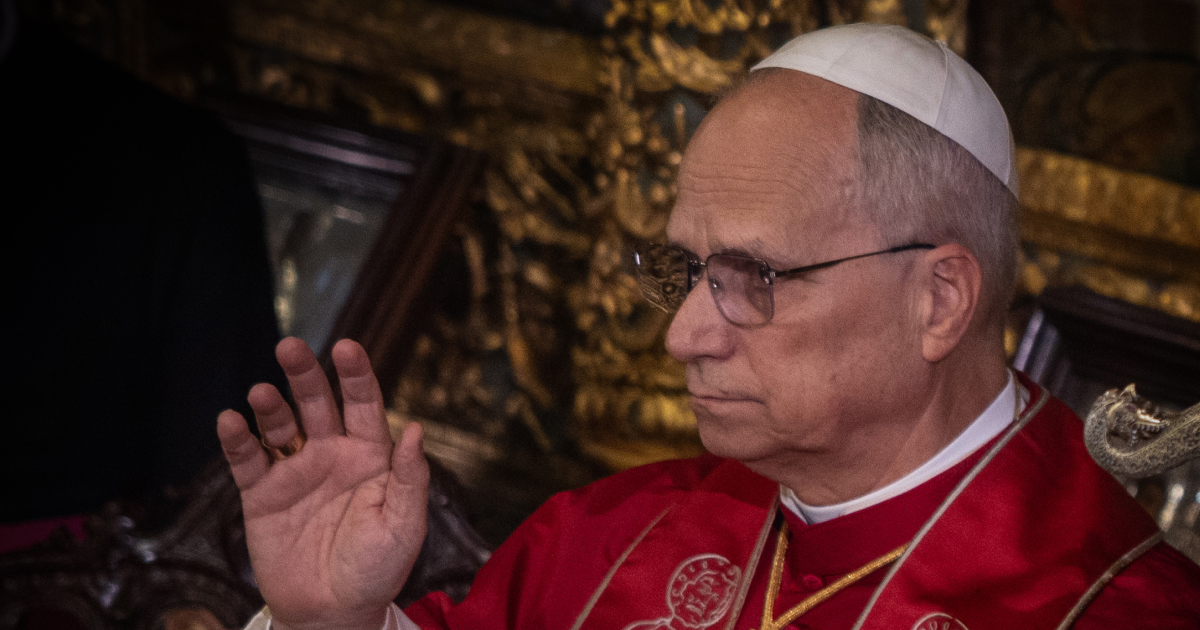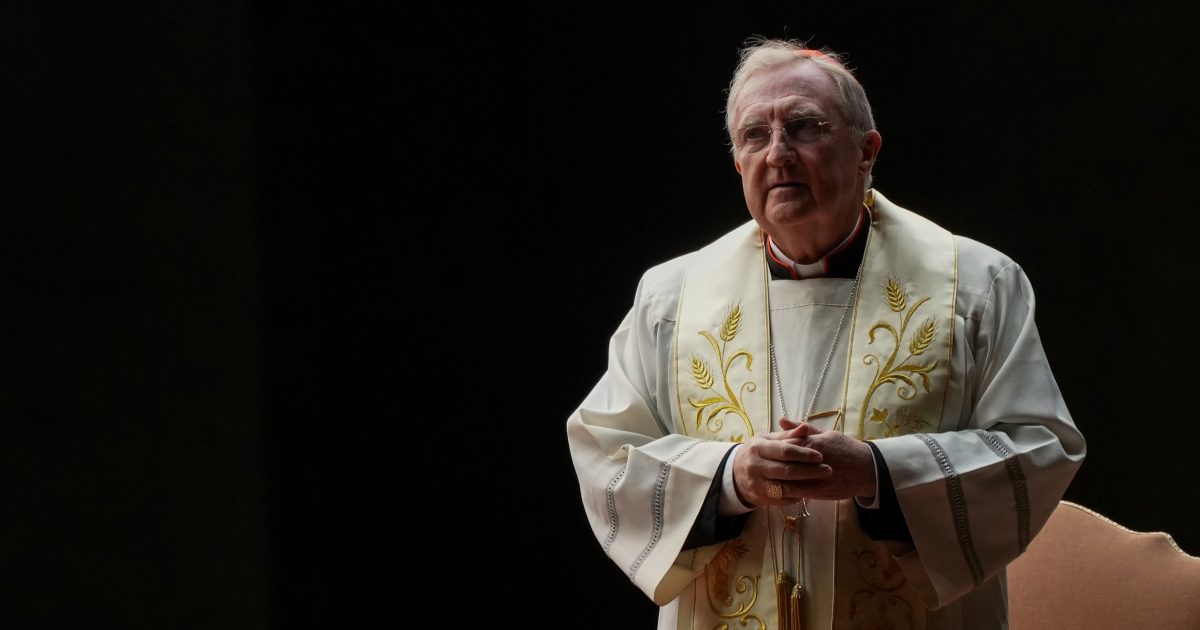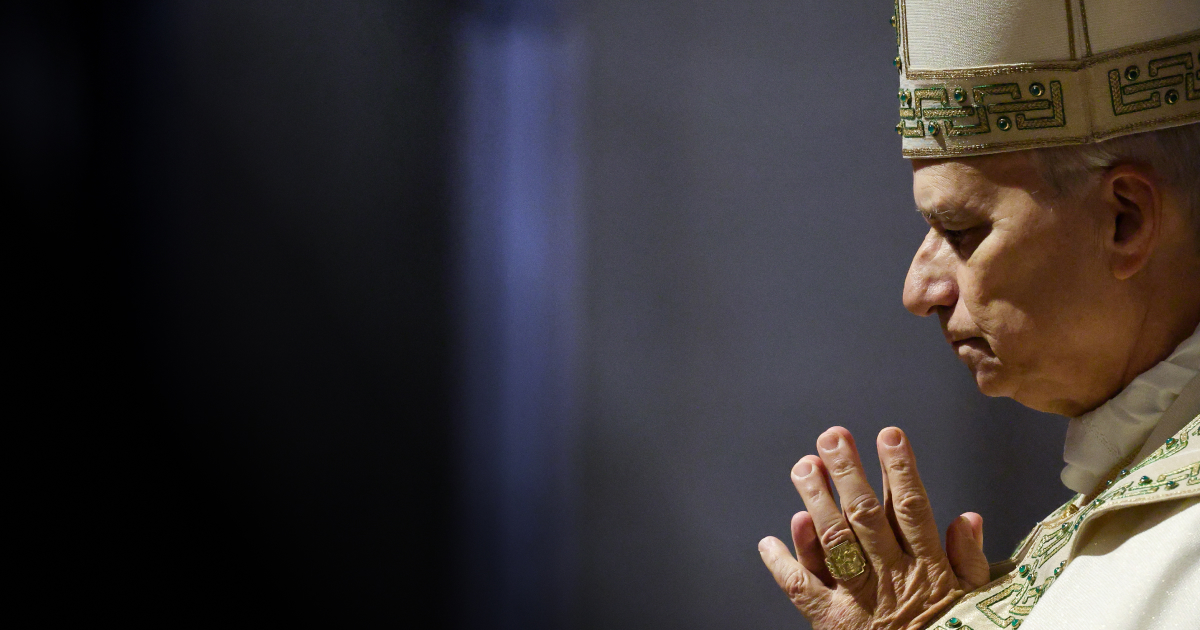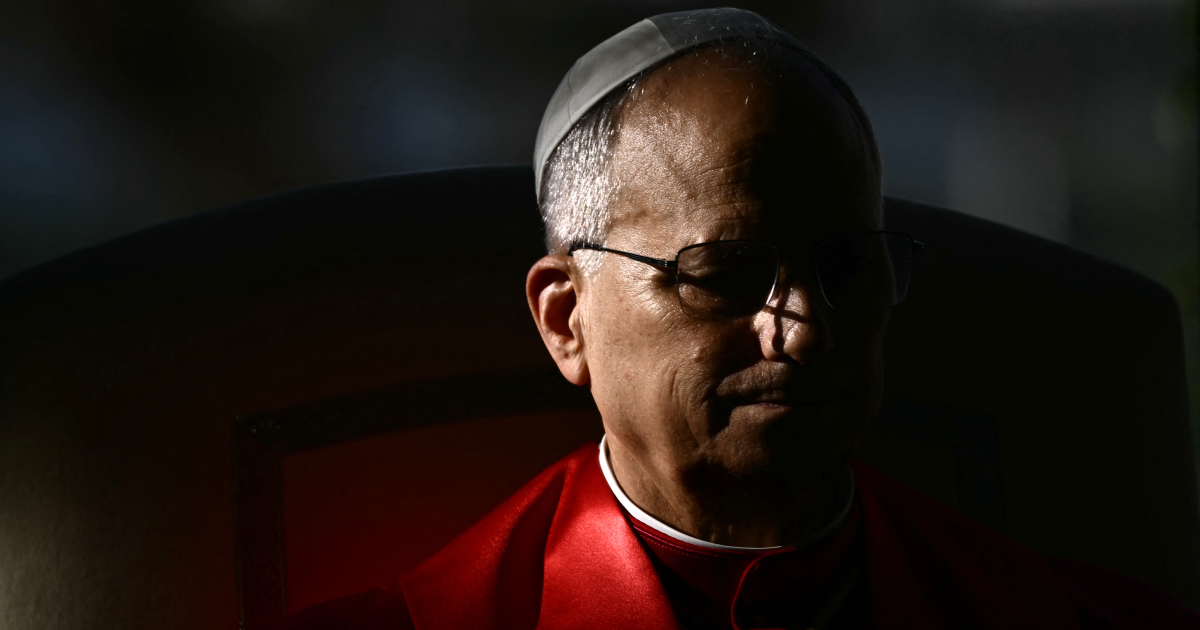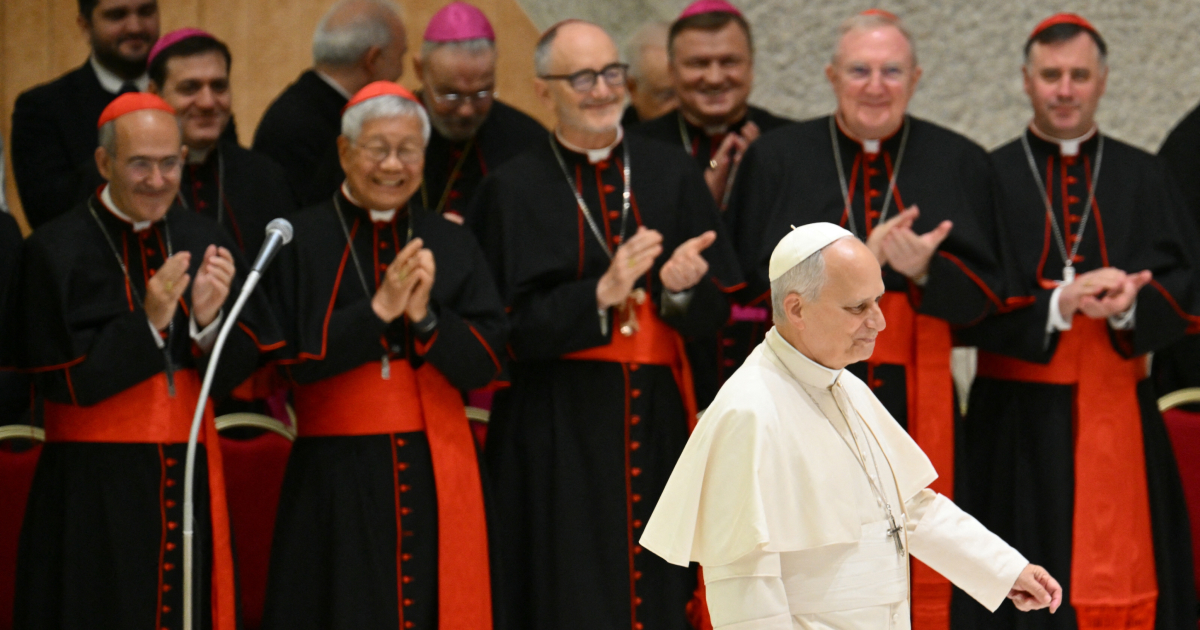On October 26, Pope Leo celebrated Holy Mass for the Jubilee of Synodal Teams to recognise the value of the groups working within parishes, dioceses, and the Church at large to help put synodality into practice.
The Jubilee began yesterday, October 25, with a full itinerary of events, including the passage through the Holy Door of St Peter’s. The event, hosted by Salvadoran journalist Paola Arriaza and Italian journalist Enrico Selleri, also featured testimonies, videos, interviews, and musical performances. In the evening, beginning at 9 p.m., a Marian Vigil was led by His Eminence Cardinal Mario Grech, Secretary General of the General Secretariat of the Synod.
Today’s Mass marked the culmination of the Jubilee of Synodal Teams. In his homily, the Holy Father spoke of the Church, generated and preserved by the Holy Spirit, as a mystery of communion. He reflected on today’s Gospel, the parable of the Pharisee and the Publican found in Luke chapter 18, and how it shows disunity between the two brought about by the Pharisee’s ego and focus on the other’s sins. The Holy Father exhorted those present to “set aside clericalism and vainglory” and instead clothe “ourselves with the sentiments of Christ.”
Brothers and Sisters,
As we celebrate the Jubilee of the Synodal Teams and Participatory Bodies, we are invited to contemplate and rediscover the mystery of the Church. She is not merely a religious institution, nor is she simply identified with hierarchies and structures. The Second Vatican Council reminds us that the Church is the visible sign of the union between God and humanity, where God intends to bring us all together into one family of brothers and sisters and make us his people: a people made up of beloved children, all united in the one embrace of his love.
Contemplating the mystery of ecclesial communion, generated and preserved by the Holy Spirit, we can also understand the meaning of synodal teams and participatory bodies. They express what occurs within the Church, where relationships do not respond to the logic of power but to that of love. The former – to recall a constant warning from Pope Francis – is a “worldly” logic. Conversely, in the Christian community, primacy belongs to the spiritual life, which reveals to us that we are all children of God, brothers and sisters, called to serve one another.
The supreme rule in the Church is love. No one is called to dominate; all are called to serve. No one should impose his or her own ideas; we must all listen to one another. No one is excluded; we are all called to participate. No one possesses the whole truth; we must all humbly seek it and seek it together.
The very word “together” expresses the call to communion in the Church. Pope Francis reminded us of this in his final Message for Lent: “...to journey together. The Church is called to walk together, to be synodal. Christians are called to walk at the side of others, and never as lone travellers. The Holy Spirit impels us not to remain self-absorbed, but to leave ourselves behind and keep walking towards God and our brothers and sisters. Journeying together means consolidating the unity grounded in our common dignity as children of God” (Message for Lent, 25 February 2025).
Walking together: this is apparently what the two characters neglect to do in the parable we have just heard in the Gospel. Both the Pharisee and the tax collector go up to the Temple to pray. We could say that they “go up together” or, at least, they find themselves together in the sacred place. Yet they are divided, and there is no communication between them. Both take the same path, but they do not walk together. Both are in the Temple, but one takes the first place, and the other remains behind. Both pray to the Father, but without being brothers and without having anything in common.
This division depends above all on the Pharisee’s attitude. His prayer, though seemingly addressed to God, is only a mirror in which he looks at, justifies and praises himself. As Saint Augustine writes, he “went up to pray: he had no mind to pray to God, but to laud himself” (Discourse 115, 2). Feeling superior, he judges the other with contempt and looks down on him. The Pharisee is obsessed with his own ego and, in this way, ends up focused on himself without having a relationship with either God or others.
Brothers and sisters, this can also happen in the Christian community. It happens when the ego prevails over the collective, causing an individualism that prevents authentic and fraternal relationships. It also occurs when the claim to be better than others, as the Pharisee does with the tax collector, creates division and turns the community into a judgmental and exclusionary place; and when one leverages one’s role to exert power rather than to serve.
We should, however, focus our attention on the tax collector. With the same humility that he showed, we too must recognise within the Church that we are all in need of God and of one another, which leads us to practise reciprocal love, listen to each other and enjoy walking together. It is based on the knowledge that Christ belongs to those who are humble, not to those who elevate themselves above the flock (cf. Saint Clement of Rome, Letter to the Corinthians, c. XVI).
The synodal teams and participatory bodies are an image of this Church that lives in communion. Please trust me when I tell you that by listening to the Spirit in dialogue, fraternity and parrhesia, you will help us to understand that, prior to any difference in gender or role, we are called in the Church to walk together in the pursuit of God. By putting aside clericalism and vainglory and clothing ourselves with the sentiments of Christ, we expand the ecclesial space so that it becomes collegial and welcoming.
This will enable us to live with confidence and a new spirit amid the tensions that run through the life of the Church: between unity and diversity, tradition and novelty, authority and participation. We must allow the Spirit to transform them, so that they do not become ideological contrapositions and harmful polarisations. It is not a question of resolving them by reducing one to the other, but of allowing them to be purified by the Spirit, so that they may be harmonised and oriented toward a common discernment.
As synodal teams and members of participatory bodies, you know that ecclesial discernment requires “interior freedom, humility, prayer, mutual trust, an openness to the new and a surrender to the will of God. It is never just a setting out of one’s own personal or group point of view or a summing up of differing individual opinions” (Final Document, 26 October 2024, 82). Being a synodal Church means recognising that truth is not possessed, but sought together, allowing ourselves to be guided by a restless heart in love with Love.
Dear friends, we must dream of and build a more humble Church; a Church that does not stand upright like the Pharisee, triumphant and inflated with pride, but bends down to wash the feet of humanity; a Church that does not judge as the Pharisee does the tax collector, but becomes a welcoming place for all; a Church that does not close in on itself, but remains attentive to God so that it can similarly listen to everyone. Let us commit ourselves to building a Church that is entirely synodal, ministerial and attracted to Christ and therefore committed to serving the world.
Upon all of us, and the Church spread throughout the world, I invoke the intercession of the Virgin Mary with the words of the Servant of God Don Tonino Bello: “Holy Mary, woman of conviviality, nourish in our Churches the desire for communion ... Help them to overcome internal divisions. Intervene when the demon of discord creeps into their midst. Extinguish the fires of factionalism. Reconcile mutual disputes. Defuse their rivalries. Stop them when they decide to go their own way, neglecting convergence on common projects” (Maria, Donna dei Nostri Giorni, 99).
May the Lord grant us this grace: to be rooted in God’s love so that we may live in communion with one another and be, as a Church, witnesses of unity and love.
(Photo by TIZIANA FABI/AFP via Getty Images)





.jpg)


